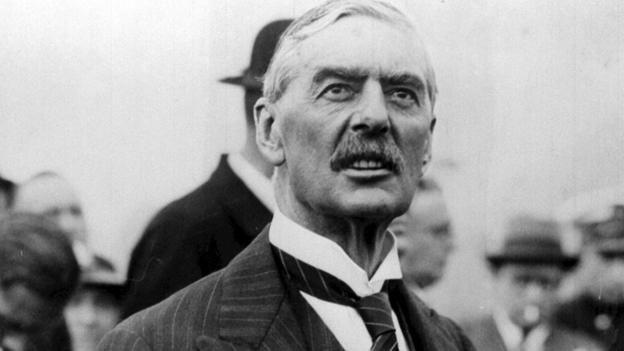The gay MPs persecuted for opposing appeasement of Nazi Germany
- Published
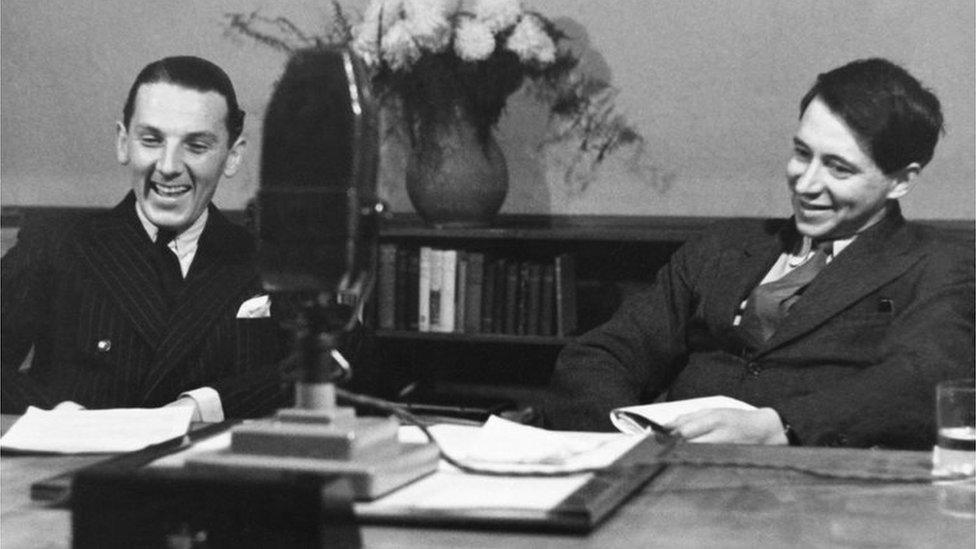
In 1991 Barbara Cartland remembered her brother (seen on the left) as "terribly inspiring" and said Winston Churchill "adored him"
Winston Churchill is often portrayed as the lone voice in the wilderness as World War Two approached - his warnings about the danger posed by Adolf Hitler falling on deaf ears.
But according to Labour MP Chris Bryant, there is another story - the story of a group of gay or bisexual MPs whose opposition to appeasement exposed them to persecution.
He tells their stories in his book, The Glamour Boys: The Secret Story of the Rebels who Fought for Britain to Defeat Hitler.
Mr Bryant became fascinated by their stories when researching for a book on the history of Parliament.
"Every sentence I read about Jack Macnamara was intriguing," he says of the Conservative MP for Chelmsford 1935-1944.
"His researcher was Guy Burgess [later uncovered as a Soviet spy], he went on sex trips to Nazi Germany and he ended up being a colonel in the London Irish Rifles.
"Who's not going to be intrigued by that sentence?"
As well as Mr Macnamara, Mr Bryant's book documents the lives of MPs including Robert Bernays, Ronnie Cartland (younger brother of the novelist Barbara Cartland), Harold Nicolson and Ronald Tree.
An emotional Chris Bryant spoke about gay MPs' roles in the anti-Nazi movement in 2016
Mr Bryant says each man had their own journey in becoming passionate opponents of appeasement - the policy of then-Prime Minister Neville Chamberlain to avoid war.
During the 1920s and early 1930s, Berlin was one of the most liberal places in the world for gay people - famously portrayed in Christopher Isherwood's novel Goodbye to Berlin, and the film Cabaret.
In Britain, homosexuality was outlawed and punishable by hard labour, so many wealthy British men headed to the German capital to enjoy what they could not in the UK.
Many among the group felt that Germany had suffered enough and that it was time to release the country from the economic and military restrictions imposed on it after World War One.
But as the Nazis grew more powerful and the MPs saw gay friends in Germany arrested and murdered by the party, they became increasingly concerned, Mr Bryant argues.
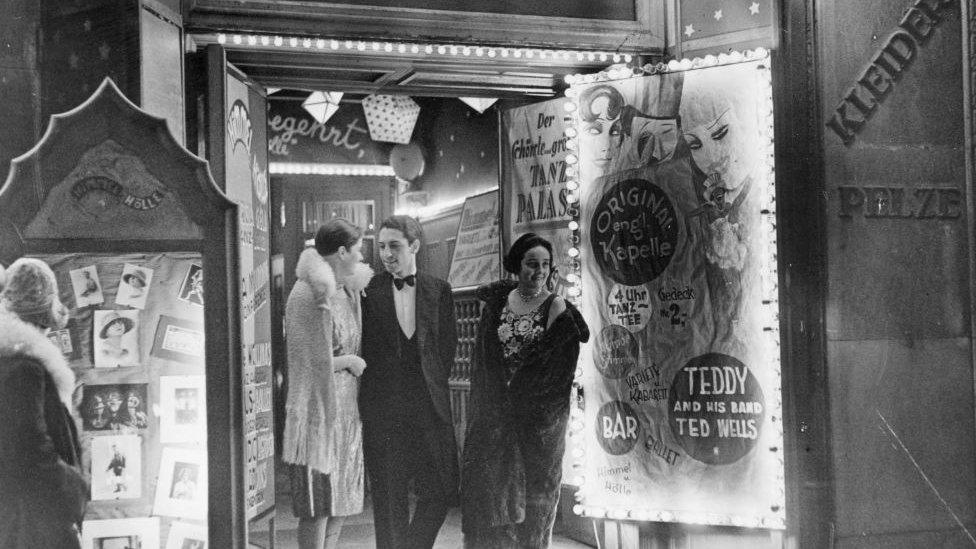
Germany's nightlife made it a popular travel destination for many British MPs in 1920s and early 1930s
The men became part of a group of rebel MPs who would meet regularly to plan how they could overturn Mr Chamberlain's appeasement policy.
"Chamberlain hated them," says Mr Bryant.
He says a government campaign was launched against them. Their phones were tapped and government-friendly newspapers pointedly asked why these men were "still bachelors".
There were moves to have the MPs deselected and Mr Chamberlain frequently referred to the group as "Glamour Boys" which Mr Bryant argues was a bid to suggest there was something untoward about their lifestyles.
'Swimming against the tide'
In the course of researching his book, Mr Bryant found evidence that Mr Chamberlain boasted to his sisters that he knew everything the rebels were up to.
And Sir Joseph Ball, head of the Conservative Research Department at the time, bought the magazine Truth to attack the prime minister's critics.
In his diaries, Mr Nicolson recalls the magazine describing him as having "the mincing manner of a French salon, that I lack virility and should retire from public life".
Mr Cartland's biography recalls how his warnings of Nazi Germany were "greeted with laughter".
And in a speech to the House of Commons, Mr Bryant told MPs that Mr Macnamara was spat at after raising concerns about "Jew-baiting".
"I'm certain that Ball tried to exploit their private lives to keep them in line," says Mr Bryant.
"They were frightened - the government had a huge majority and public opinion was against them so it was quite an intimidating time.
"They were swimming against the tide - but their whole lives were about swimming against the tide so they ploughed on.
"History says that Churchill was always fighting Hitler - but what this story tells us is that there was a very significant number of people surrounding Churchill - nearly all queer - who were the driving force."
'Ruthless'
Tim Bouverie, author of Appeasing Hitler: Chamberlain, Churchill and the Road to War, says almost all MPs who opposed Mr Chamberlain came under huge amounts of pressure.
"The whips were incredibly powerful in the 1930s," he says.
"The threat of deselection certainly hung over those who refused to toe the line.
"And Chamberlain was more than prepared to whip up local Conservative Associations against anti-appeasement MPs."
He says newspapers at the time reported that such MPs had been blacklisted. And after making a strong speech in Parliament, Mr Cartland was described by Mr Chamberlain as a "traitor in the camp".
Mr Bouverie also cites the National Liberal Secretary of State for War (1937-1940) Leslie Hore-Belisha who said: "The Conservative party machine is even stronger than the Nazi party machine. It may have a different aim, but it is similarly callous and ruthless."
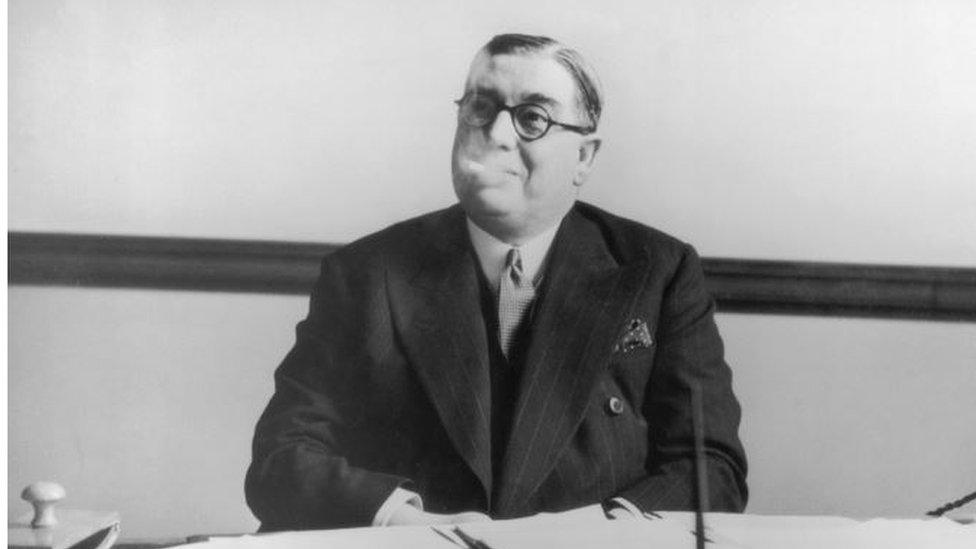
Mr Bryant says Chamberlain ally Sir Joseph Ball (pictured here) organised secret operations against anti-Nazi MPs
Come the war, many in the rebel group wanted to enlist in the Army. Mr Cartland told his mother he thought he would hate the Army but felt he "couldn't ask other young men to go and fight for him".
Mr Macnamara said: "I've argued for this war, I should fight." He died under German bombardment in Italy in 1944.
Mr Bernays was killed on active service in January 1945.
And Mr Cartland died in 1940 in Dunkirk, defending the French town of Cassel, which allowed other British soldiers to escape. His brother was also killed in the same year.
Winston Churchill described Mr Cartland as "a man of noble spirit who followed his convictions without thought of personal advancement".
"At a time when our political life had become feckless and dull he spoke fearlessly for Britain."
Despite their acts of bravery, both before and during the war, many of these men's stories have been forgotten. Mr Bryant says he hopes his book will serve to "keep the flame alive".
He also hopes it will remind people that "progress isn't permanent".
"I often worry a younger generation of gay men and women think we will never go back to the era of repression.
"But I just say Berlin was the most liberal place in the world in 1930 - yet by 1934 gays were being arrested."
The Glamour Boys: The Secret Story of the Rebels who Fought for Britain to Defeat Hitler will be published by Bloomsbury on 12 November
- Published18 June 2020
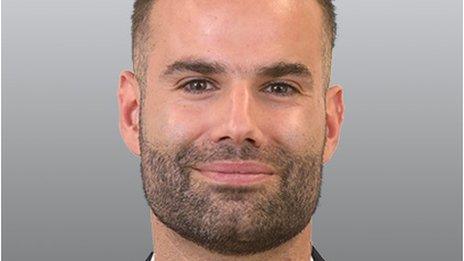
- Published8 May 2020
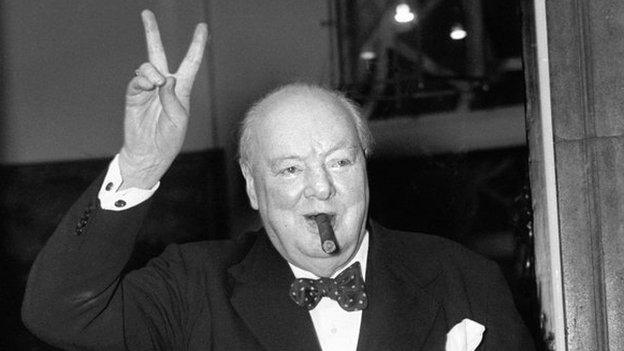
- Published30 September 2013
